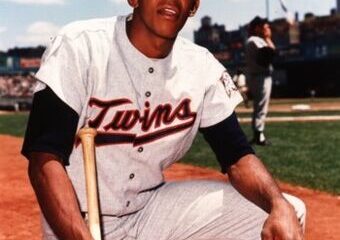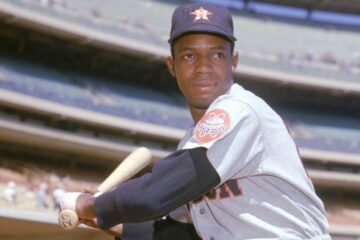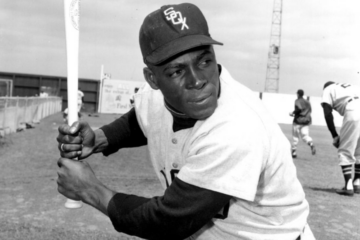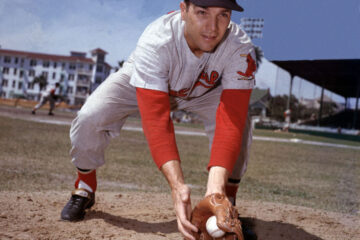The Hall of Fame Index: Evan Longoria vs. Robin Ventura and Jimmy Collins

When we get to the modern third basemen we get to an interesting question as it pertains to the Hall of Fame. It is called the Baseball Hall of Fame. It isn’t called the MLB Hall of Fame or the Professional Hall of Fame. So, how much do we count accomplishments that occur outside of the big leagues? It may not have as big an impact on our current nominee Evan Longoria, but he does have some college numbers.
He played two seasons at Long Beach State and produced a combined 76 runs, 16 home runs, and 73 RBI in 483 plate appearances. One of the two players he is most comparable to had an even better collegiate record. Ventura won the Golden Spikes Award in 1986 (the Heisman trophy for college baseball players) with a sparkling .469 average, 21 home runs, and a ridiculous 107 runs and 95 RBI in just 69 games. He hit .428 across his whole college career and was voted the third best NCAA player in history.
The question becomes whether that success gets added to the case for either of these two players when it comes time to consider them for the Hall of Fame. Ventura fell off the ballot in 2010 because he failed to garner five percent of the vote, but he will be eligible now that ten years has gone for the Veterans Committee ballot.
Career Numbers
| BWAR | FWAR | WS/5 | Total | |
| Robin Ventura | 56.1 | 56.7 | 54.8 | 167.6 |
| Jimmy Collins | 53.4 | 52.5 | 54.8 | 160.7 |
| Evan Longoria | 56.0 | 51.1 | 46.4 | 153.5 |
Collins for his part is normally regarded as the first great third baseman in the game’s history. I would think that John McGraw would have something to say about that, but Collins pioneered the position defensively by revolutionizing how third basemen played the bunt. His place in the history of the game (McGraw notwithstanding) is about the lack of great third basemen in the game’s early period.
There are only a handful of Hall of Fame third baseman that were active before World War II. As you will see in the book, one of them had no business being anywhere near the Hall of Fame. So, it is easier to put Collins up on a pedestal as being the very best of a lackluster group of players. Moreover, he represents some of the problems we have with the “if…then” argument. It’s hard to argue for Ventura and Longoria because they are similar to Collins. Collins barely qualifies himself.
Obviously, Longoria is not finished, but his career does illustrate our need to wait ten years on a player. As recently as 2016, he was producing 36 home runs and a 123 wRC+. He hasn’t completely tumbled off the grid since then, but he could charitably be called average overall. It’s often difficult to predict how the decline phase of each person’s career will go.
Peak Value
| BWAR | FWAR | WS/5 | Total | Index | |
| Collins | 47.7 | 47.7 | 47.4 | 142.8 | 303.5 |
| Ventura | 46.2 | 46.6 | 40.6 | 133.4 | 301.0 |
| Longoria | 51.8 | 48.5 | 42.2 | 142.5 | 296.0 |
Ironically, Ventura and Longoria are similar beyond their tight index score distribution. Much was expected of each and there is a common conception that they failed to deliver on their immense promise. For Ventura, that is largely based on his college numbers. Funny, but both Bob Horner and Pete Incavaglia (who finished in front of him in the all-time college baseball poll) failed to deliver on their promise as well.
Suffice it to say, critics fail to consider the factors that play into that. Obviously, pitching is better at the big league level, but the switch to wood bats from aluminum bats also played a major role. It wasn’t until the 1990s when the NCAA purposely deadened the aluminum bats to cut down on offensive numbers. All three had long and somewhat productive careers at the highest level. Ventura is a borderline Hall of Fame candidate as we can see. Maybe that college career should throw him over the top.
With one more average season, Longoria will be virtually even with Ventura across the board. This is where losing a season to the virus is so disheartening. Historically, we cannot assume facts not in evidence. However, another .750ish OPS season with another 20 home runs would have likely put him in the same territory as these two.
Offensive Numbers
| OPS+ | Rbaser | OW% | wOBA | |
| Longoria | 121 | 4 | .568 | .345 |
| Ventura | 114 | -13 | .557 | .351 |
| Collins | 113 | -11 | .610 | .358 |
All three of these players possess a quality that only seems to be appreciated in sabermetric circles. As casual fans, we are attracted to greatness. You look throughout history and see examples of this and it mesmerizes the imagination. We are attracted to hitters that hit for average, hitters that hit for power, or players that are able to dominate on the bases. We typically don’t get attracted to players that are good across the board.
Yet, this is largely where value comes from. What makes a Mike Trout great is not necessarily any one facet of his game. What makes him great is that he is very good at all of them. In a similar way, all three of these players were both good hitters and (as we will see) good fielders. The combination of being good at multiple facets of the game makes them very good overall in terms of value.
Fielding Numbers
| Rfield | DWAR | TZ3B | DWS/5 | |
| Ventura | 155 | 17.9 | 152 | 14.1 |
| Collins | 121 | 16.8 | 122 | 17.9 |
| Longoria | 105 | 14.3 | 78 | 11.3 |
To give you a perfect illustration, billjamesonline.com chronicles defensive runs saved and a player’s positional rank each season. Longoria has tallied +89 runs since 2008. That’s a little better than his +78 UZR and not quite as good as his +105 Rfield. He led the majors in 2011 with +20, but that has been the only season where he led the league. He was second one other time (2010) and has finished in the top five on five additional occasions. If we were fairly giving away Gold Glove awards he would probably have two.
He had a three year stretch where he registered -15 runs. Obviously, those were bad seasons. He was a top ten defensive third baseman in every other season. Ventura’s record is fairly similar even though he didn’t play with defensive runs saved until the very end. Collins was legitimately regarded as the best defensive third baseman of his time, but all three demonstrated very good overall value even though no individual number jumps off the page.
Playoff Numbers
| PA | Slash | HR | Runs | RBI | |
| Ventura | 153 | .177/.307/.306 | 3 | 12 | 19 |
| Longoria | 126 | .191/.262/.470 | 9 | 16 | 21 |
| Collins | 37 | .250/.270/.389 | 0 | 5 | 1 |
The job of a Hall of Fame voter might seem glamorous and enviable, but when you have to break a player’s career down to its many layers it is not easy. Ventura and Longoria have their college careers that could provide a boost, but these playoff numbers deflate those balloons pretty quickly. Longoria’s .732 OPS is not that bad, so at least he’s produced some power, but his place on the Giants probably means there will be no more opportunities for postseason success for him.
Ventura’s case seems to deflate before our very eyes. Of course, the big question is how much stock do we put into something like this? We could reasonably consider a tiebreaker, but then we have the college question. Is there one test or factor that deserves more question than the other? Collins at least seems to come closer to his regular season production, so it probably ends up being neutral for him.
BWAR MVP Points
| Top 10 | Top 5 | MVP | Points | |
| Collins | 3 | 3 | 0 | 24 |
| Longoria | 2 | 2 | 0 | 16 |
| Ventura | 1 | 1 | 0 | 8 |
It’s fair to claim that Ventura was always a good player, but he was rarely ever a great player. It seems somehow disingenuous to criticize a Harold Baines on the same notion and then turn around and argue for a Ventura. However, as we noted in a previous article, Baines never finished with a top ten or top five finish. So, Ventura is not deficient to that degree, but he definitely comes up a little short.
Longoria is obviously not finished yet, but he has the look of a borderline candidate in every sense. His index score will likely end up a little north of 300 and every other test has points for him and against him. I’m pretty comfortable saying if he can produce two more average seasons overall he likely will at least earn a spot according to the index.





